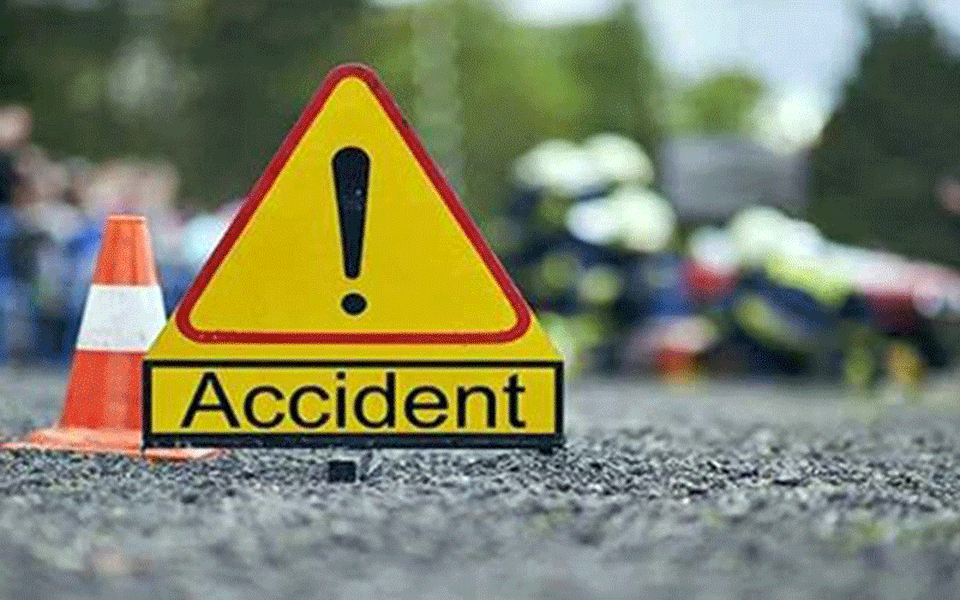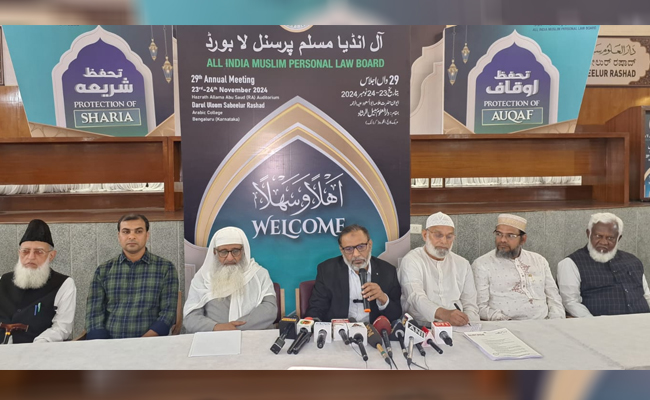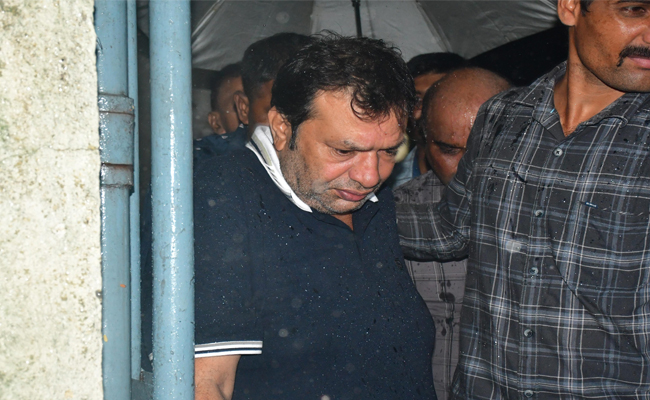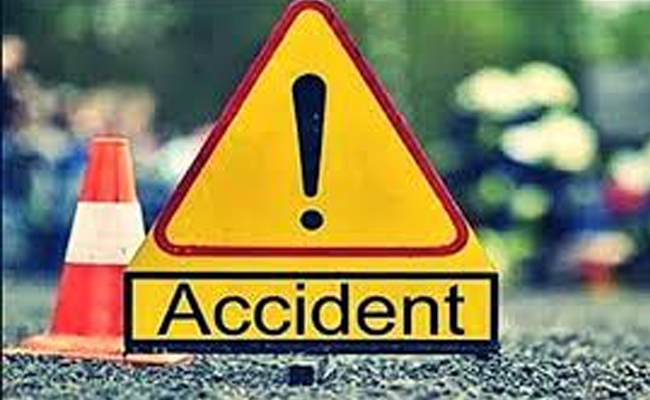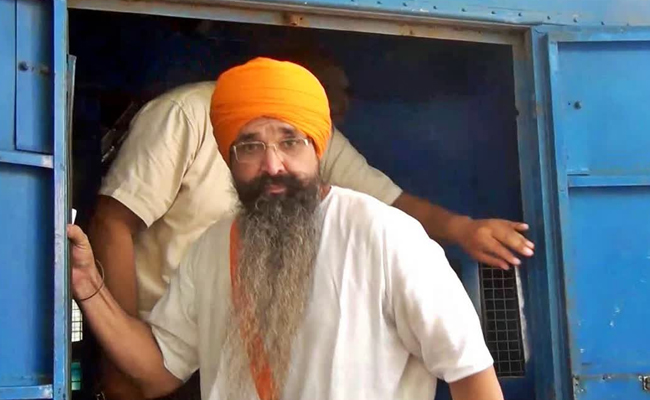Belgavi: Four persons, including the lorry driver, were killed when a truck hit the vehicle after a tyre burst near Nippani in Chikkodi taluk on NH-4.
The deceased have been identified as lorry driver Ramesh; Nadeem, Shabbir, and Raja Mohammed, all travelling in the jeep. Three more persons who sustained severe injuries have been hospitalised.
It has been reported that the lorry driver lost the control over the vehicle due to tyre burst and rammed into the jeep.
Let the Truth be known. If you read VB and like VB, please be a VB Supporter and Help us deliver the Truth to one and all.
Bengaluru: The All India Muslim Personal Law Board (AIMPLB) on Monday addressed a press conference following the conclusion of its national convention in Bengaluru. The Board raised concerns over several pressing national and international issues, including the Waqf Amendment Bill, the Uniform Civil Code (UCC), and recent controversies surrounding places of worship in the country. The Board also spoke about the ongoing conflict in Gaza, terming it a "genocide."
Syed Qasim Rasool Ilyas, spokesperson for the AIMPLB, strongly opposed the proposed Waqf Amendment Bill, warning the government of protests and legal challenges if the bill is passed without thorough consultation with all stakeholders.
"Waqf properties are donated specifically for the benefit of the Muslim community and for charitable purposes. These properties cannot and should not be altered or interfered with by the government," he said. Ilyas emphasized the historical and legal sanctity of Waqf properties, stating that any changes to the law without proper discussion would be unacceptable to the community.
The Uniform Civil Code (UCC) was another critical issue discussed during the convention. Ilyas reiterated the Board's long-standing opposition to the UCC, stating that it threatens the pluralistic nature of Indian society.
"The UCC will disrupt the very fabric of this country. India thrives on its diversity, and a uniform code disregards this essential characteristic," he said. He explained that the Indian legal framework already accommodates individuals who choose not to follow their personal laws.
Ilyas also criticized the UCC implemented by the Uttarakhand government, calling it unconstitutional. "How can it be called a 'Uniform Civil Code' when it is applied only in one state?" he questioned. The AIMPLB plans to challenge the Uttarakhand UCC in the Nainital High Court through a Public Interest Litigation (PIL) soon.
The Board also addressed growing tensions surrounding places of worship, particularly the rising claims that some mosques were originally temples. Ilyas pointed out that such disputes are in violation of the Places of Worship Act, 1992, which mandates that the status of religious sites shall remain as they were in 1947.
"The Supreme Court, in its verdict on the Babri Masjid case, clearly stated that no further disputes of this nature should arise. Yet, we see new cases being brought up regularly," he said.
Citing a recent incident in Sambhal, Uttar Pradesh, where police action against protesters left two dead, Ilyas condemned the violence. "This incident was tragic and could have been avoided. It is deeply condemnable," he added.
The AIMPLB also expressed solidarity with the people of Palestine, highlighting the ongoing crisis in Gaza. Ilyas termed the situation a "genocide," pointing to the reported deaths of over 45,000 people in the last year.
"This is not a war; it is a genocide. The international community must take urgent steps to address the issue," he said. The Board called for a two-state solution as a pathway to peace and justice in the region.
The press conference was attended by several senior AIMPLB officials, including the Board’s president, Maulana Khalid Saifullah Rahmani. The officials emphasized the need for unity among stakeholders and the Muslim community to address the challenges highlighted during the convention.
The AIMPLB pledged to continue its advocacy through protests, legal actions, and public engagement to safeguard the rights of the community and uphold the constitutional values of the country.

